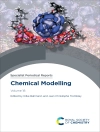This book offers comprehensive coverage of the most important areas in photoreceptors and light signalling. Photoreceptors enable most species to sense not only the presence of light but also the information, such as irradiance, colour or spectral distribution, direction and polarization of light. They are vital, therefore, in providing organisms with energy and information about their surroundings, such as day and night cycles. This book covers the range of photoreceptors that have been discovered to date and the broad range of methods used when researching how they operate, including: action spectroscopy; methods for protein purification; the whole range of molecular biological and genetic methods; and numerous spectroscopic methods, from absorption and fluorescence spectroscopy to X-ray diffraction, used for solving the structure of photoreceptors. Written by leading experts in the field, Photoreceptors and Light Signalling provides the reader with the most recent results and research. This book will be valued by a wide-range of readers, including students of photochemistry, photobiology, biology, chemistry and physics and other professionals in academia.
Tabella dei contenuti
Archeabacterial Phototaxis;
Invertebrate Rhodopsin;
Vertebrate Rhodopsin;
Rhodopsin-related proteins, Cop1, Cop2 and Chop1, in Chlamydomonas reinhardtii;
The Phytochromes: Spectroscopy and Function;
Phytochrome Signal Transduction;
Phytochromes and phytochrome-like proteins in cyanobacteria;
The family of Photoactive Yellow Proteins, the Xanthopsins: From structure and mechanism of photoactivation to biological function;
Higher Plant Phototropins: Photoreceptors not only for Phototropism;
Cryptochromes and their functions in plant development;
Blue light receptors in fern and moss;
Photoreceptors resetting the circadian clock;
Subject Index












